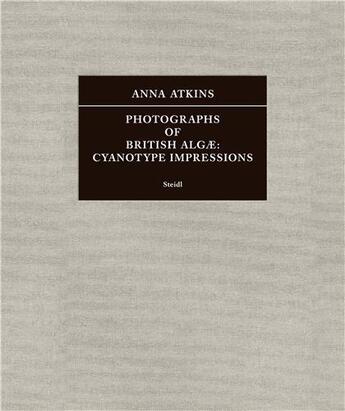-
Date de parution : 01/03/2023
-
Editeur :
Steidl
-
EAN : 9783958295100
-
Série :
(-)
-
Support :
Papier
Résumé:
Shortly after William Henry Fox Talbot announced his invention of photography in 1839, the amateur botanist Anna Atkins (1799-1871), daughter of a prominent British scientist, began to experiment with the medium. In 1843 she turned to her friend Sir John Herschel's recently discovered cyanotype... Voir plus
Shortly after William Henry Fox Talbot announced his invention of photography in 1839, the amateur botanist Anna Atkins (1799-1871), daughter of a prominent British scientist, began to experiment with the medium. In 1843 she turned to her friend Sir John Herschel's recently discovered cyanotype process to publish her collection of native seaweeds. Over the next decade, Atkins printed and issued these bracingly modern photograms to her botanical friends in the form of hand-stitched fascicles.
The first book to be illustrated by photography and the earliest sustained application of photography to science, British Algæ is a landmark in publishing and photography. Of the nearly two dozen substantially complete or partial copies known to exist, each is distinct in its appearance and often in its number and arrangement of plates. The set of 13 parts she gave to Herschel--now in the Spencer Collection of the New York Public Library--is especially important and was carefully preserved by generations of the Herschel family. This sumptuous facsimile edition reproduces the recto and verso of each plate, presenting the work as its creator intended.
Donner votre avis















